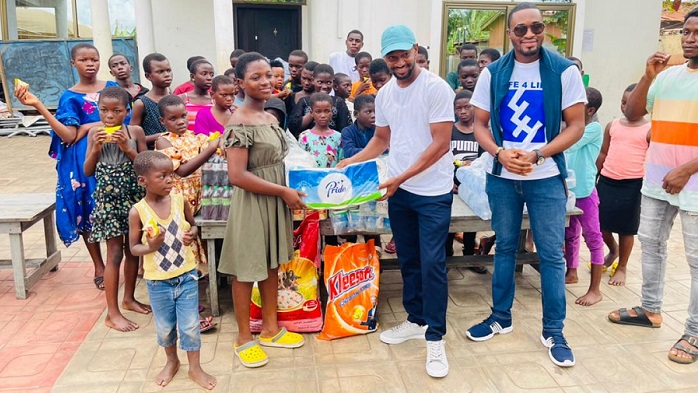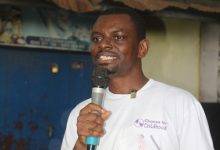
A non-governmental organisation, Life4Life Foundation, focused on child, adolescent and youth development, over the weekend presented items to the Motherly Love Orphanage in Kwabenya.
The items included packs of bottled water, soft drinks, powdered soap, T-roll among others.
The kind gesture forms part of the NGO’s corporate social responsibility and the desire to take steps in life for the betterment of others.
Presenting the items, President of Life4Life Foundation, Daniel Lartey, bemoaned the lack of programmes to properly integrate children affected by HIV and AIDS into the society.
“The effects of HIV-related stigma on children made orphans by AIDS are very devastating.
“These children are isolated by their peers and this goes a long way to affect their general well-being, growth and development,” he stated.
For him, if that canker towards such minority groups, was not curbed, it could stall progress made over the years by relevant stakeholders in ending the disease.
MrLartey indicated that the focus on policy for children’s development like that of Ghana’s National HIV and AIDS policy should not end at the formulation phase, but rather implemented to the latter.
He stated that the AIDS epidemic could not end without the needs of people living with HIV being addressed.
These issues, he said must be at the forefront of Ghana’s Sustainable Development efforts.
“We cannot just have things written in a form of a policy on paper but in reality less action is being taken, saying the phenomenon is making it more difficult to protect the basic rights of these children.
“We cannot close our eyes while the basic human rights of children affected by HIV are trampled upon. Children the world over are battling this challenge and it’s time we take drastic measures to protect something as basic as right to life,” he stated.
The Project Director for the orphanage, Kenneth Parku, for his part, called on policy makers to shift attention to children affected by the diseases and work with CSOs and NGOs to collate data on the situation and initiate appropriate interventions to end the stigma.
BY BENEDICTA GYIMAAH FOLLEY






